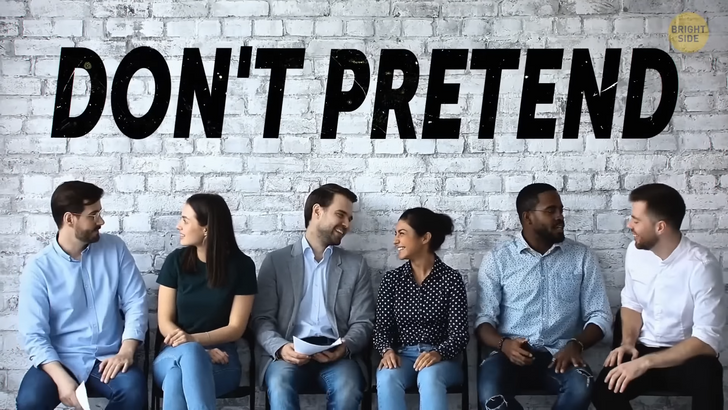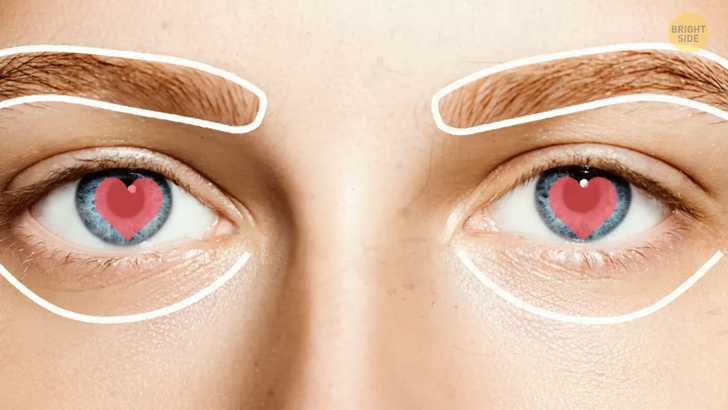16 Moments That Show Kindness Is the Quiet Courage the World Needs


If you don’t want your small talk to turn into a big problem, remember always to ask “Why” and not “What.” A simple question like “What do you do for a living?” will give you a one-word answer. But if you ask the person why they decided to choose the job of a pilot, an accountant, or a teacher, they’ll tell you much more about themselves.
Once they start answering the “Why” question, you’ll be able to figure out what their values in life, hobbies, and interests are. For example, if they mention they decided to become a teacher because everyone in their family had that job, it’s obvious that their relatives mean the world to them.

To inspire your new acquaintance to share stories with you and not just give you one-word answers, take the lead and share something slightly personal. Secrets bring people closer like magic. Of course, it doesn’t have to be something really personal or embarrassing.
You can tell them how you discovered a new restaurant by accident or a fun vacation story. Share a few details about your latest project at work or what inspires you. The person you’re talking to will most likely do the same. If someone brings up the topic of weather or traffic, don’t think twice and immediately divert the conversation in any other direction. Such cliché topics won’t take you anywhere.
Don’t be afraid to look funny or make a mistake unless you’re in a work environment, and you don’t want your new colleagues or boss to question your expertise. In all other cases, be the first to laugh at that funny word you just made out or a silly mistake you made. It makes you look more approachable and seem cuter to others. Plus, laughter is irresistible, so you’re highly likely to make the other person smile.

Learn to ask questions not out of courtesy but out of genuine curiosity. If the person you’re talking to says they love shopping, and that’s something you can’t stand, try segwaying to the topic of food, for example. “That shopping mall sounds like fun, but what about the food court? Do you like Italian food, by the way?” That’s an easy way to make the conversation interesting for both of you. Don’t pretend you care about something you actually don’t. It’s always easy to notice, and then you won’t seem trustworthy.
Help the people you’re talking to by asking original questions. You can think of those on your way to the meeting or even have a ready-made list that will work in all situations. “What superpower would you like to have?” “Where would you go if someone invented the teleport?” These questions don’t leave room for a boring one-line answer and will take your conversation further.
Ask your new prospective friends for advice. Every person has their area of expertise, and once you know their interests, you can really get some useful information from them. It makes people feel competent and get the idea they’re your allies.

Try to remember all the names and as many details about your conversation partners as you can. If someone you’ve just met or only seen once in your life remembers your name, it makes you feel more important in the conversation. So, call the person by name, and remember the names of their company, college, best friends, and pets. It’s one of the easiest ways to leave the best impression on someone.
To take your relationship with someone to the next level, try whispering every now and then. That’s an intimate form of communication that brings people together. To enhance the effect, lean slightly toward the other person as if you are sharing a secret without violating anyone’s personal space. A person will instinctively lean towards you to hear better.
Compliment your new acquaintance, but don’t make it sound like obvious flattery. Mention that you love their work, give them a platonic physical compliment or praise their energy. “Being around people with your kind of vibes is always fun” — is a good starting point.

Encourage your partner to praise themselves. Ask your opponent to talk about their achievements or merits, then show surprise, “Wow! Did you really do it yourself? How did you manage to do it?” The person will have nothing else to do but praise themselves a bit. As a result, you’ll both feel good and relaxed. You can also try complimenting someone from the third person. Say that your mutual friend noted their excellent sense of style. Point out something your conversation partner has achieved by working hard. It always feels the most rewarding.
Raise your eyebrows when you meet other people. It lets them know that you’re friendly towards them. The human brain recognizes this signal even from a distance and perceives it as a sign of a person who’s pleasant in communication. Just don’t keep long eye contact when playing with eyebrows or frowning them. That’s a bit disturbing.
Maybe the person you’re trying to have a conversation with just doesn’t feel comfortable around you? Look at their feet! If they’re pointed away from you, your conversation partner is consciously or subconsciously dreaming of getting going as soon as possible. The same is true if they’re trying to distance themselves from you in any possible way, even if it’s taking just one step back.

If they cross their arms across the chest or their legs or maybe all at the same time, they might feel uncomfortable or defensive as they don’t share the same opinion as you. It’s possible that they’re just used to sitting this way. But if you’re worried, it never hurts to double-check if the person feels comfortable with the conversation.
Is the person you’re trying to talk to swaying side to side? Unless they really love the music in the room, it’s another sign they aren’t comfortable in your presence. The easiest way to make them relax is by telling them you won’t mind if they go. If they really have to be elsewhere or can’t stand your company, they’ll most likely say they’re sorry and leave. If that’s not the case, you’ll know they do like you, and that will help a smoother conversation.
Now that you know the person is actually into this conversation with you, make sure you aren’t the one sending negative messages. Standing with your ankles crossed shows that you don’t completely believe in the things you’re saying. If you have your hands in your pockets, it’s a sign you’re nervous or trying to hide something — not a great conversation starter. The same goes for covering your mouth. It looks like this hand is helping you hide some secrets or cover your lies.

Smirking, or obviously forcing yourself to smile, is a too-obvious attempt of making others feel comfortable but not being comfortable yourself. Same with mirroring: you probably know you subconsciously copy the behavior of someone you like, but don’t go too far! It’s always noticeable when you deliberately copy every move and gesture of another person to make them like you. If you have the habit of sitting at the table and talking to a person with your hand extended out towards them, they might see it as a sign you want them to stop talking.
In case you have a fear of any social situations, and it prevents you from meeting new people, try some techniques that will help you feel comfortable in public. Think of the worst-case scenario. If you say something silly or forget something, will someone laugh at you or leave that very second? Most likely, people won’t even notice your mistake. As you run through your possible failure in your head, it looks way more dramatic than reality.
Try to single out the scariest things and find a solution for each of them before you open the door to the small talk room. If you’re afraid you won’t know how to start, a simple “Hello” will do. If you think there might be nothing to talk about, make a list of topics you’re passionate about. At least one of them should help you out.











